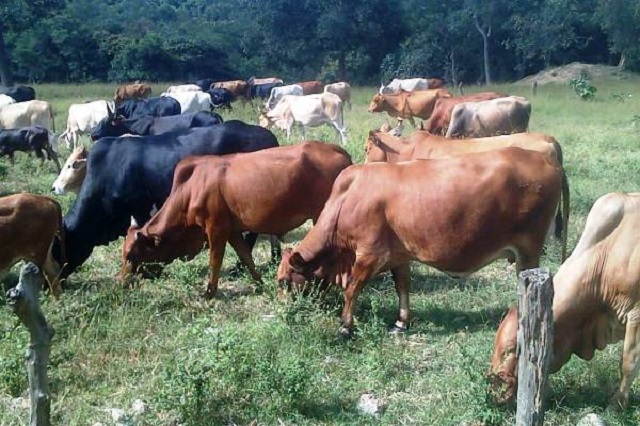
The Sunday News

Mhlupheki Dube
ONE of the challenges one faces when trying to inculcate a commercial mindset among smallholder livestock farmers is the depressed offtake. Smallholder livestock farmers have an inherent reluctance to sell their animals. This is despite the fact that about 80 percent of the national herd is held by smallholders.
It is a well documented fact that even during the peak of our beef export period to the European Union it was the commercial livestock farmers who were servicing this quota.
The livestock offtake from commercial farmers then was around 21 percent while smallholder farmers offtake stood at 2,5 percent.
Percentage offtake refers to the number of animals a farmer sells annually as a fraction of his/ her total herd.
It is an indicator of the business approach that farmer has with regards to his/ her livestock enterprise.
In smallholder communal farmers this figure has not changed much over the years because it is around three percent.
This gives credence to the widely held view that smallholder livestock farmers keep animals more for prestige than business.
I however, do not subscribe to this notion.
I fully appreciated that livestock farmers are completely rational beings who are capable of making sound economic decisions.
It is no secret that the bad economic performance of our country and most importantly the collapse of the banking sector has made many people to invest in livestock.
Suddenly farms and communal lands have become banks for many people including professionals with full-time jobs elsewhere.
Therefore until the economic fundamentals of this country change and the economy begins to have a pulse, this trend where people bank their money in livestock will continue.
In fact it is the most reasonable bank at the moment because you will get your interest in terms of calves born and you can always withdraw your “money” with relative ease.
Hence, instead of livestock practitioners castigating smallholder farmers for holding on to their animals rather than sell, we should in fact think hard on how we can encourage farmers to increase the numbers of animals they sell annually.
This will increase the percentage offtake and drive the livestock industry. If producers are not selling their animals for whatever reason it inevitably affects the whole livestock value chain especially the apex.
Right now abattoirs are struggling to get animals because farmers are not selling.
While it is a natural trend that there are less animals in the market during this time of the year as most animals lose condition, the downstream effect is that meat wholesalers and butcheries find themselves struggling to fulfil their contract obligations especially with big chain supermarkets and hotels.
The important questions that livestock practitioners and extensionists need to ponder over is how the can the offtake among smallholder livestock farmers be stimulated.
What incentives can be provided to farmers to encourage them to sell? As an example can we not have a special facility that if a farmer sells his animals he is allowed to withdraw at least eight percent of his income in cash?
This will even protect smallholder farmers from the cunning middlemen who are using the lure of cash to induce farmers to sell to them even if they are offering low prices.
The middlemen do not hesitate to buy cash from the black market channels because they know it gives them a competitive advantage when looking for animals to buy among communal farmers. Banks could provide a facility for livestock farmers to access their cash once they have sold the animals to formal channels such as butcheries and abattoirs.
This can stimulate selling and oil the livestock value chain. We need to find a sustainable offtake figure which keeps supply of beef available thoroughout the year.
I know seasoned farmers now wait for the dry season when animals are in short supply and the prices are premium for them to sell. However, the question is how many of our farmers benefit from this short window period of premium prices? Is it not good to find a national offtake figure that provides an optimum balance between demand and supply of animals in the market such that there is a constant good price throughout the year instead of waiting for this short dry season period to provide good prices.
If farmers are somehow made to understand that when buying or selling they are contributing to the general performance of the livestock value chain and eventually to the price trends within the industry maybe they could appreciate their importance.
It could be a long shot but the point of this article is that in as much as it makes perfect business and economic sense for farmers to hold their investment in cattle, it is also important for them to sell to keep the livestock value chain functional.
Uyabonga umntakaMaKhumalo.
Feedback [email protected] or cell 0772851275.



